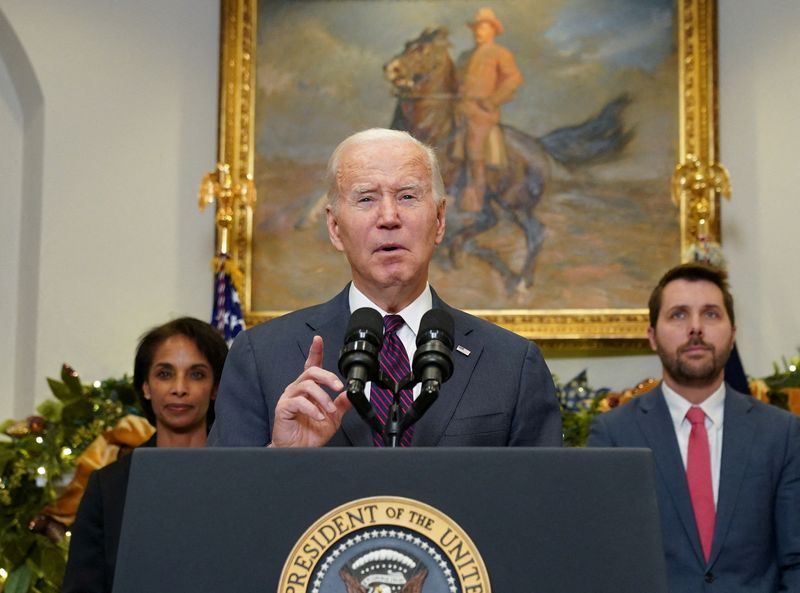Which Biden rule against law?
2022.12.14 12:29
[ad_1]

Which Biden rule against law?
Budrigannews.com – Business organizations have informed the Biden administration that its proposal to restrict U.S. companies’ use of independent contractors does not comply with federal wage law, foreshadowing potential legal challenges once the rule is implemented.
Before the Tuesday night deadline, the U.S. Department of Labor received over 50,000 comments on the October proposal. This staggering number demonstrates the rule’s broad impact on manufacturing, the gig economy, and trucking.
Workers who are “economically dependent” on a company would be required to be treated as employees and be entitled to more benefits and legal protections than contractors under the proposal, which is likely to be finalized in the spring.
Workers who own their own businesses or have the ability to work for competing companies, like an Uber driver (NYSE:), are prohibited from doing so by a Trump administration regulation. likewise Lyft (NASDAQ:), can be treated like employees.
The proposal has received support from numerous labor unions, worker advocacy groups, and Democrats. In their comments, these groups claim that misclassification of workers is widespread in a variety of industries, including trucking, delivery, construction, and home healthcare, and that it particularly harms low-income immigrant and minority workers.
The U.S. Chamber of Commerce and the National Federation of Independent Businesses, two major business organizations, claimed that the Labor Department had not provided an explanation for the sudden change that was proposed less than two years after the Trump administration’s rule went into effect.
More BNY Mellon Bank reward employees when others cut payments
In lawsuits challenging the rule, that claim is likely to be the central argument. The federal law that governs agency rulemaking mandates that they explain why the existing rules are insufficient and must be replaced.
Additionally, groups claimed that the Labor Department underestimated the cost of the rule to employers and that the proposal’s definition of employment is more expansive than that of federal wage law.
The Flex (NASDAQ:) stated, “The proposed rule is arbitrary and capricious and, as a result, likely to be rejected by the first federal court to evaluate its enforceability.” Association that represents Uber, Lyft, and other companies in the gig economy
According to a 2021 study, the Trump administration’s rule has cost workers $3.7 billion and reduced social insurance funds like workers’ compensation and unemployment insurance by $750 million, according to the left-leaning Center for American Progress.








